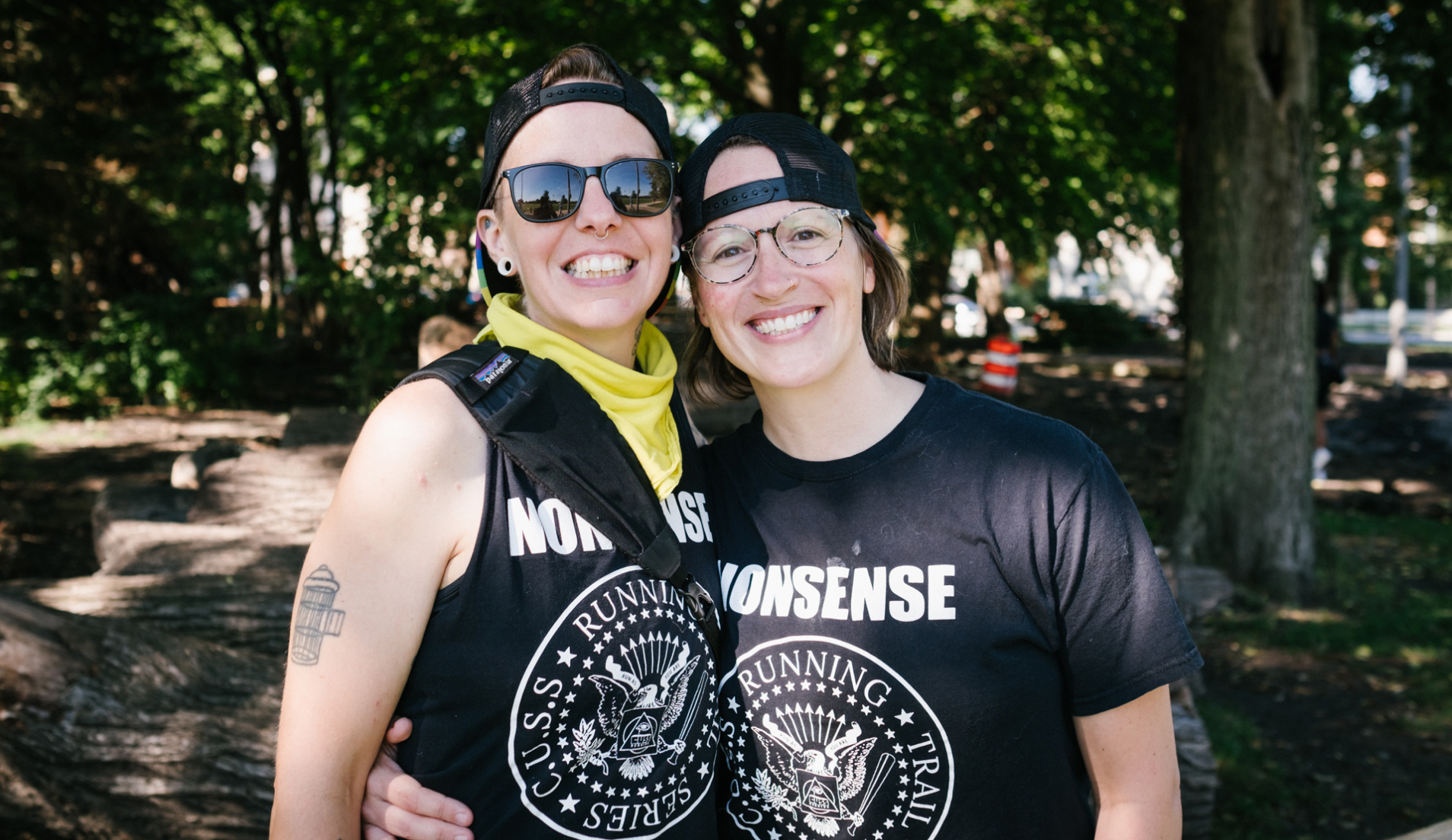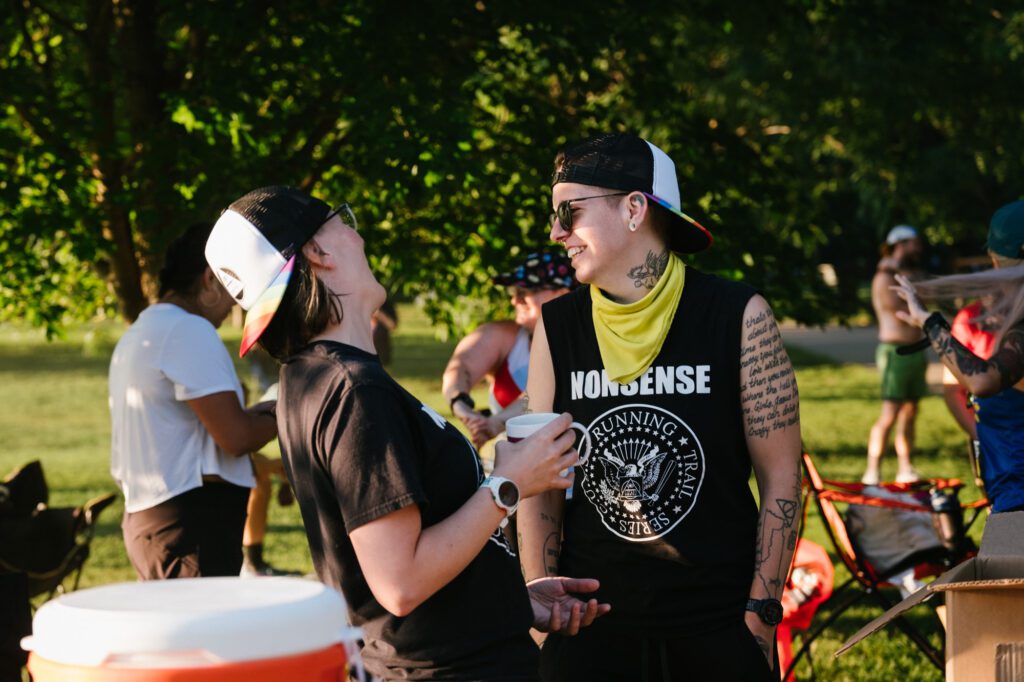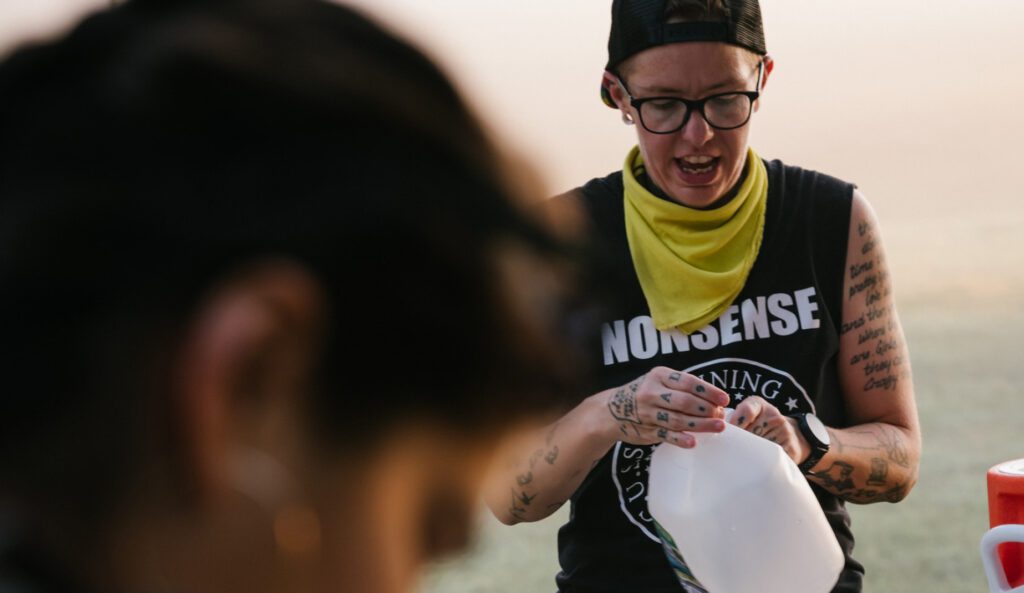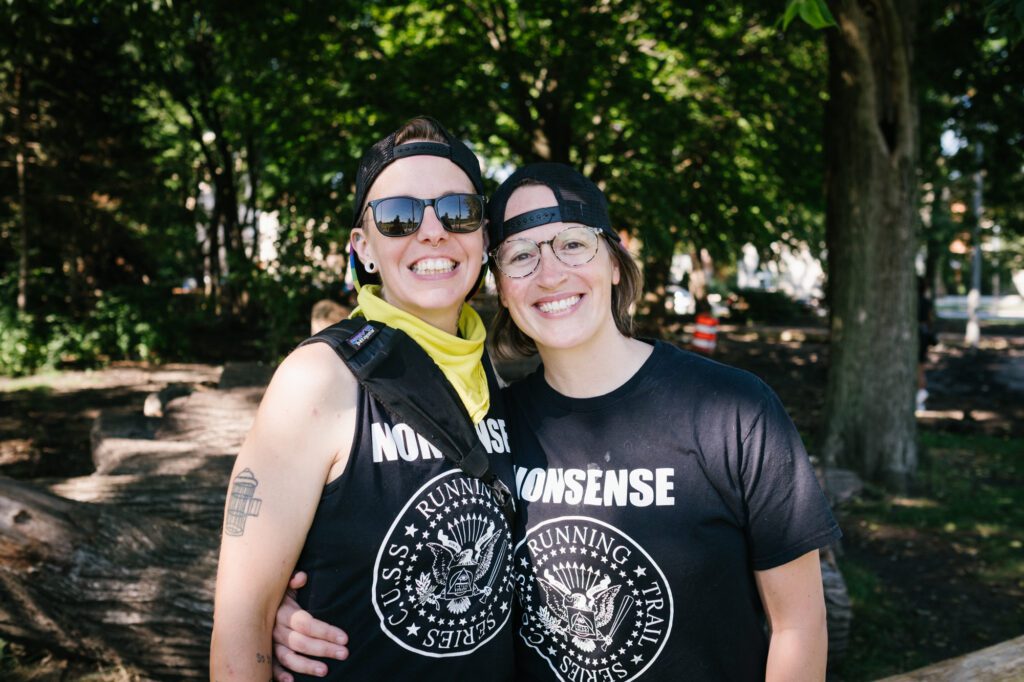

Long literary passages are inked into her arms. There’s a familiar rune and a serpent medallion—the Deathly Hallows, an Auryn; a whole coded language for initiates, for readers—rendered permanently in Ally’s skin. She has no fewer than three tattoos inspired by Kurt Vonnegut, perhaps the most beloved American satirist of the twentieth century. Vonnegut—known for writing ‘Slaughterhouse-Five’ and ‘Cat’s Cradle’ among others—was a humanist. Ally, too, may well be a humanist. Her actions certainly suggest as much.

As founder (Chief Magician!) and Race Director of Chicago’s much-beloved CUSS Running, Ally has given more than $1,000 in race fees to BIPOC and LGBTQ+ athletes over the course of 2022, with hopes to double that sum next year. In July, Ally pledged all the profits from this year’s three remaining CUSS events to the Chicago Abortion Fund and Everytown, a national advocacy organization committed to ending gun violence. “Why wouldn’t I use it (CUSS Running) as a platform to speak up and give back,” says Ally. “CUSS is a passion. It is not my full-time job. It is not my career. I don’t need to make money from this.”
Alongside her wife (and Director of Fast Jogging!), Elaine Young, Ally has built CUSS Running into a dynamic, thriving community. In this interview, she discusses the perks of training in an urban environment, childcare at races, and the difference between inclusion and belonging.

I was seeing events that weren’t the kind of events I would want to attend. So, I figured, let me direct races that I really like. I’m a very silly person. I’m not serious. I’m very introverted. It takes a lot for someone to come to an event and not be intimidated. There are a lot of people who line up at the start and think they’re going to be the last to finish. It was really important to me that people feel happy and have fun. So, I started by putting out funny challenges for people to do. It was the beginning of COVID, before I started race directing. It was dumb shit. But it was dumb shit that I do over the course of my runs because I’m a silly person. And I put it out there because I thought other people would think this is fun. Luckily I’ve been right. I’ve had a lot of people embrace the challenges. There are even people in other countries who do them. So, I started applying them to races. Throughout the course, I have people do challenges and they embrace them.

People come to running so excited and so passionate only to quickly burn themselves out. I can’t tell you how many twenty-four- to twenty-eight-year-old men I’ve seen this happen to. And then they don’t run anymore. They leave the community, which is sad. I want everybody to run their whole life. I think if you can find the joy in it, like a little kid running, you can have an amazing relationship with it. You don’t need to do a 100-miler to be an ultra-runner, you don’t even need to run an ultra-distance. If you have it in your heart, and it’s a goal that you believe in, that mentality is what sets you apart. Do you think ultrarunning, as a sport, takes itself too seriously? One hundred percent, for the most part. It’s crazy to me that people are like, “It’s blowing up. It’s getting too big. Why can’t it be like it was before?” Dude, we are the tiniest, littlest niche sport. We are a blip. You need to stop taking it so seriously. It’s still a tiny little community. It has plenty of room for growth before it gets to the level of normal road races.
One hundred percent, for the most part. It’s crazy to me that people are like, “It’s blowing up. It’s getting too big. Why can’t it be like it was before?” Dude, we are the tiniest, littlest niche sport. We are a blip. You need to stop taking it so seriously. It’s still a tiny little community. It has plenty of room for growth before it gets to the level of normal road races.
Oh, totally. I think the thing that makes runners from flat, urbans environments better in a way, is that you have to conquer the mental part without the satisfaction of beautiful views or the diversity of going up or downhill. You have to be mentally disciplined to run distances that are boring. There are people that run thirty miles on the Lakeshore Trail. How wild is that, to run on that path for so long? That would be boring to me. But if people can do that, they can do anything. Also, running in the city, I can stop at a 7-11 or run a route based on bakeries, which I often do. You can’t do that on a trail.

There is a safety issue when training that doesn’t apply to male runners. And they don’t get it either. They think, “Oh, you can get up at four in the morning and run.” No, I can’t. It is a very unsafe environment out there. I think the biggest thing is teaching safety practices at races and teaching women how to be safer by running in groups and facilitating female training camps. That’s huge. They don’t feel safe on trails. They don’t feel safe running early in the morning. And men like to comment on women, which sucks. When they see it happening, I think men should tell other men to shut up. It’s a male problem, but females have to deal with it.
I’ve talked with several people about this and we’re all trying to find a solution. It comes down to taking on a huge liability. So I had this idea: In the same way that I give race entries away, I could create a scholarship fund that goes just to childcare. Like, “Hey, we have money that goes towards a babysitter for the day so you can come out and do this race.” Going through motherhood, being six months postpartum, I thought I’d be more recovered by now, but I’m not. Having education around that would also be beneficial.
I don’t think there’s a lot of diversity among race directors, quite honestly. The vast majority are men. They don’t understand a lot of those challenges as a hetero person. For me, as a queer person, I’ve had it pretty good. I’ve pretty much never been in the closet. But I have so many friends who have been closeted and still carry so much shame around that. So being able to show up to an event as yourself is something unique. If I can be that voice that not only welcomes you but tells you that you belong, that’s a big thing. There’s a difference between inclusion and belonging. Saying that you include someone, that’s something you’ve determined. You control the space. But saying you belong here, is a whole different narrative. I’m not transgender. I had to go talk to transgender runners and ask, “What am I doing here? Am I doing this right?” I give free races to queer and people from marginalized communities across the board. Just email me and I’ll send you the code. I’m not going to ask you for proof. I’ve had people email me who are in the closet, asking if they can still participate in this. I’m like, “Oh, my god. Even more reason.”
If you have an idea and a passion for it, just do it. You’re perfectly capable. There is plenty of room in the trail and ultrarunning space for more races and for female race directors. Don’t let fear hold you back.
Edited for length and clarity.
